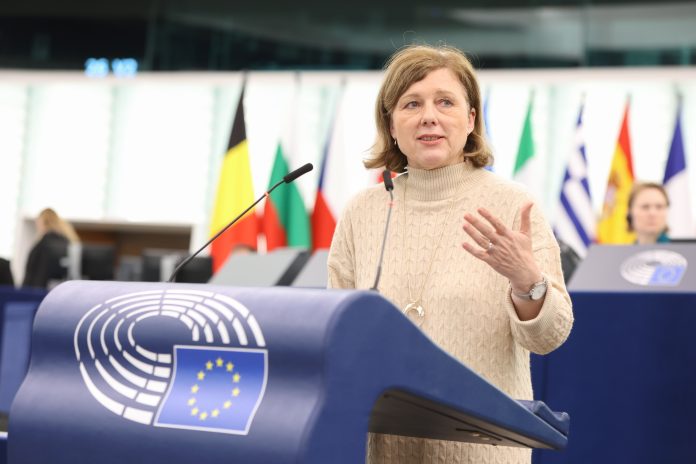MEPs are asking for more reforms, building on the ones announced by the Conference of Presidents, and demand an EU’s independent ethics body be set up swiftly.
On Thursday, Parliament adopted two resolutions on the issue of transparency and integrity in EU decision-making.
Strong and immediate reforms are necessary
Following up on the measures requested by Parliament in December 2022 and welcoming the recent decision by Parliament’s President and political group leaders as a necessary first step, MEPs reiterate that they will show “zero tolerance for corruption in any shape and at any level” and insist that Parliament must show “unequivocal unity and unwavering resolve” in this regard. They list areas where further improvements are needed, namely:
- better implementation of the Code of Conduct, including financial sanctions in case of breaches, the introduction of more sanctionable activities, and a ban on any remunerated activities that could create a conflict of interest with an MEP’s mandate;
- an approval process for trips paid by third countries and additional vetting for MEPs’ assistants and Parliament staff working in sensitive policy fields, particularly in foreign affairs, security and defence;
- the Advisory Committee on the Conduct of Members should be reformed to fill in for the independent EU Ethics Body until it is in place;
- asset declarations by MEPs at the beginning and end of each mandate;
- adequate resources for the Transparency Register and an obligation for MEPs, but also their staff and Parliament employees to declare work meetings with third country diplomats, where they would have “an active role and clear and immediate influence” in Parliament’s work, except where this could put those involved in danger or jeopardise public interest;
- internal rules should be aligned with the Whistleblower Directive; and
- the measures taken regarding representatives of Qatar should be extended to those of Morocco.
Stringent control of NGO financing
Parliament notes that NGOs have allegedly been used as vectors of foreign interference, and urges a review of existing regulations to enhance transparency on their governance, budget, foreign influence and persons of significant control. It underlines that NGOs receiving money from parties who do not have to sign up to the Transparency Register (e.g. third countries) also need to disclose the sources of their funding, and requests that if this information is not disclosed, they should not receive EU public money. It also calls for a comprehensive financial pre-screening before an NGO is listed on the EU transparency register, for any contractual agreements with the Commission to be published, and a clear definition of which NGOs are allowed to register and are eligible to receive EU funding. Nevertheless, it also deplores the use of the corruption scandal “to launch a misguided smearing campaign” against NGOs and spread misinformation on the lack of transparency of their funding, reiterating its unwavering support to civil society organisations that speak up for human rights and the environment in full respect of the rules.
MEPs also want the ING2 Committee and other responsible bodies to revise Parliament’s ethics rules before the summer.
The resolution was adopted with 401 votes for, three against, and 133 abstentions.
No more delays for the independent ethics body
Parliament reiterates its call for an independent ethics body for the EU institutions, based on MEPs’ proposals of September 2021, to restore citizens’ trust. The Commission’s proposal should be submitted by March, and negotiations should conclude by the summer break, MEPs say. This body should clearly distinguish between criminal actions, breaches of institutional rules, and unethical behaviour. It would play a key role in protecting whistleblowers within the EU institutions, while working in a complementary manner with other EU bodies such as the anti-fraud office (OLAF), the Public Prosecutors Office (EPPO), the Ombudsman and the European Court of Auditors.
The resolution was adopted with 388 votes for, 72 against, and 76 abstentions.
During her speech in plenary on 14 February 2023, Vice-President Věra Jourová announced that the Commission will table a proposal for an independent ethics body in the next weeks, aiming to cover all institutions and bodies mentioned in Article 13 of the Treaty on the EU.

